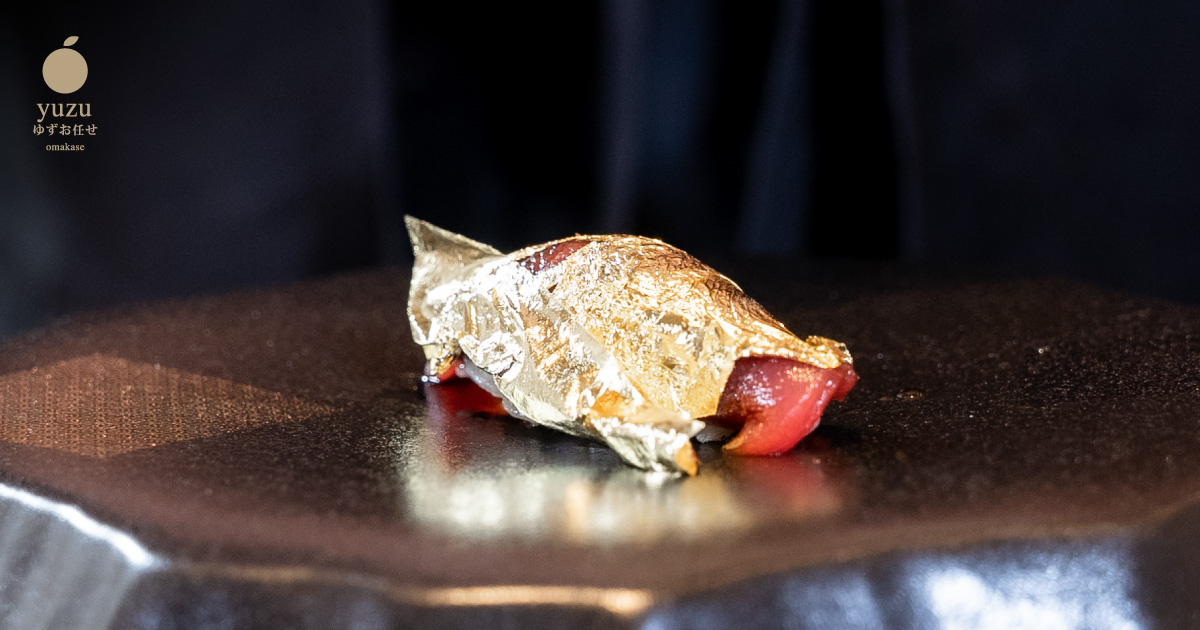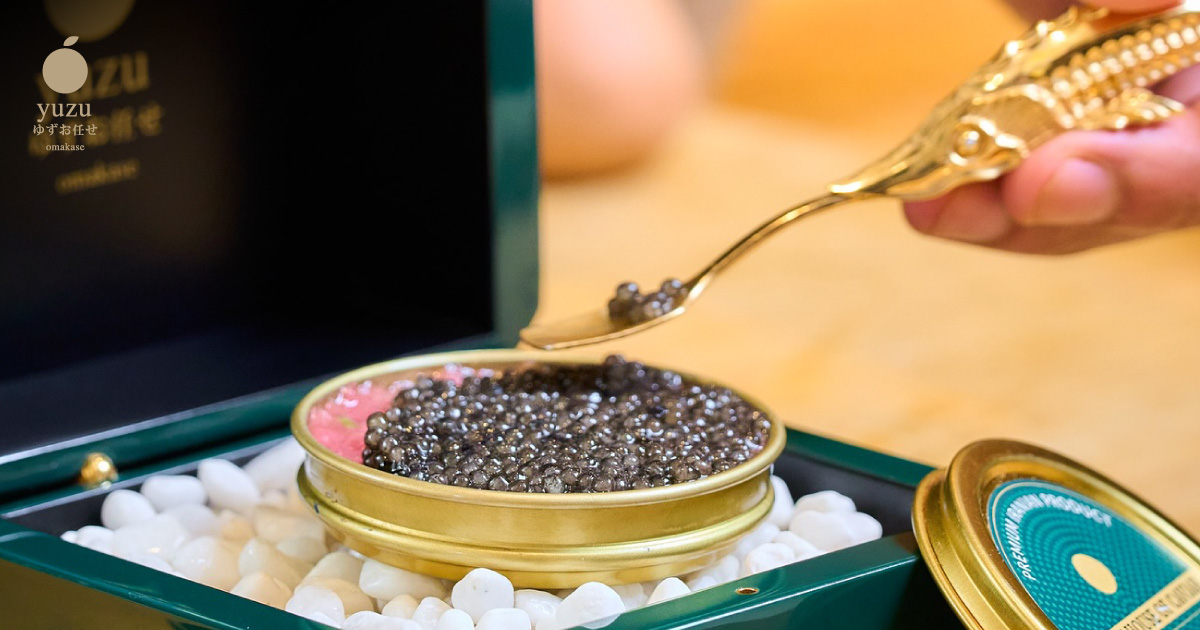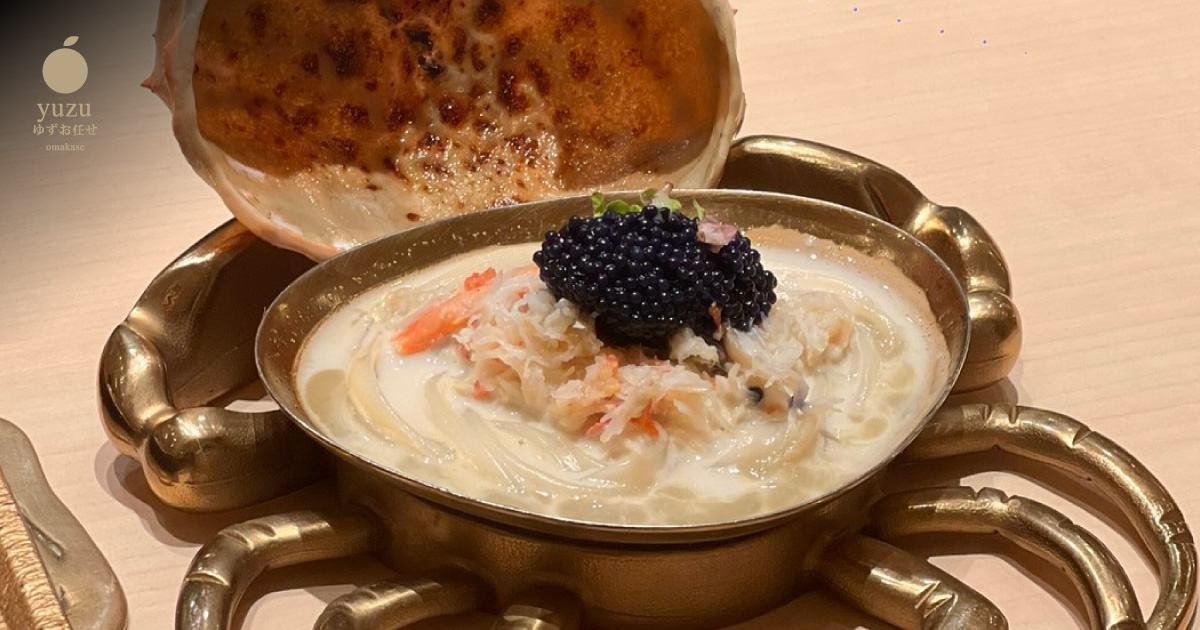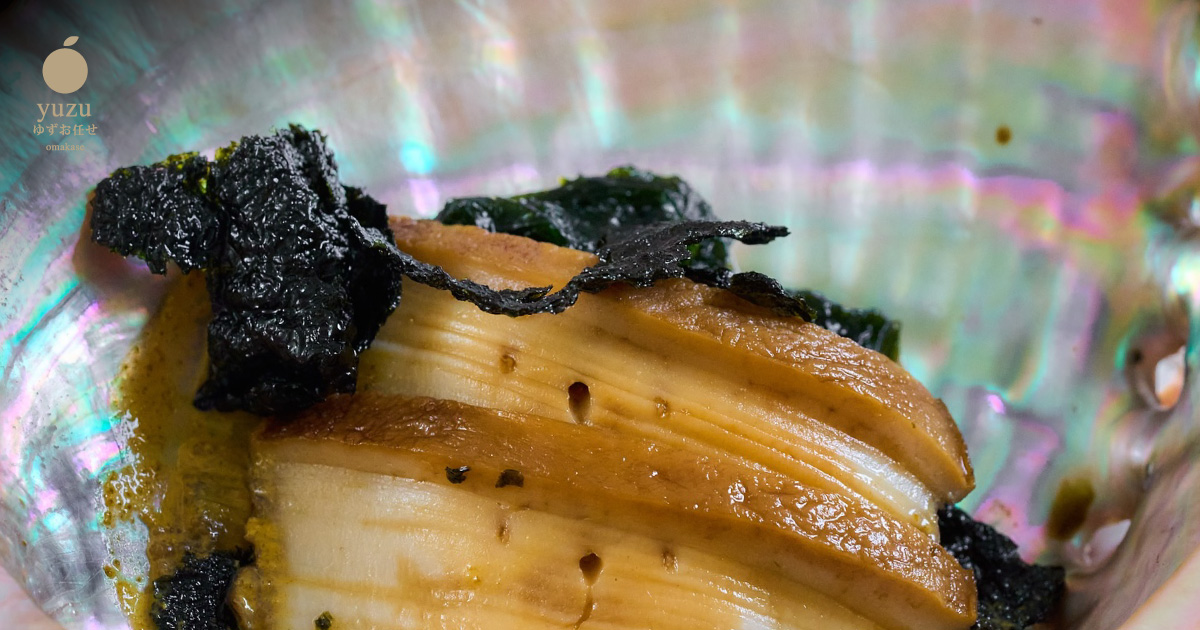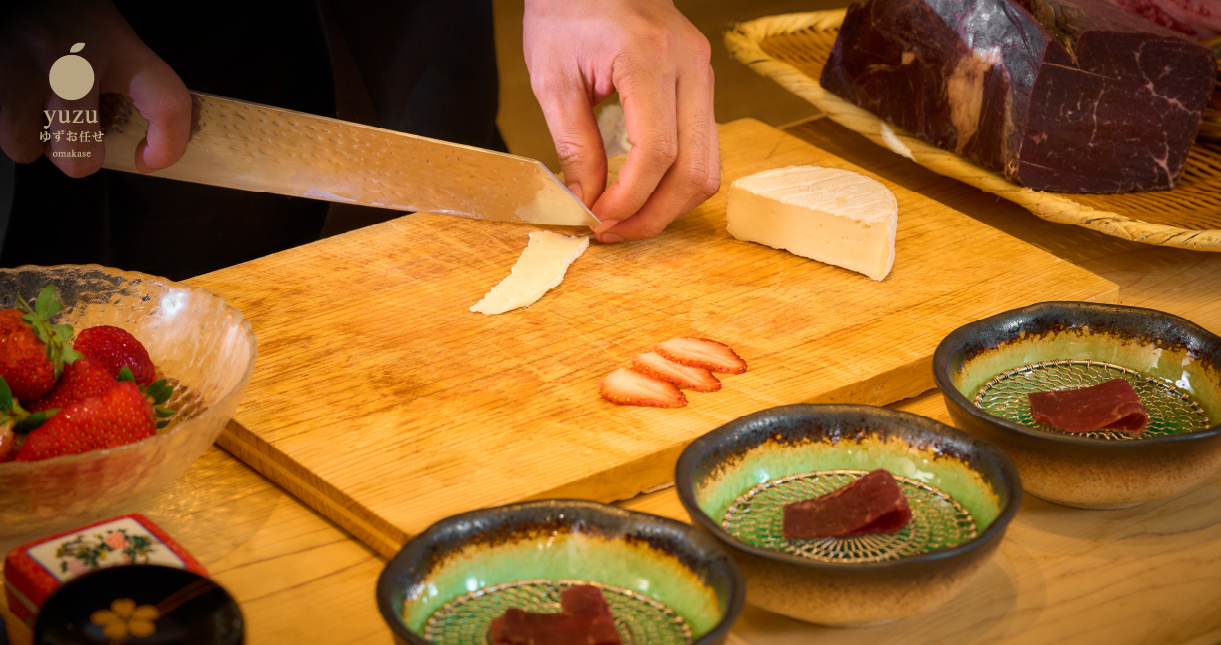
How the Design of a Zen Japanese Restaurant Impacts Your Mental Well-Being
A Dining Experience Beyond Food Dining is more than just enjoying a meal—it can be a holistic experience that engages all the senses and promotes a sense of peace and well-being. At Yuzu Omakase, we are dedicated to not only providing exquisite Japanese cuisine but also creating an environment that nurtures relaxation and mindfulness. The design of our restaurant, inspired by the principles of Zen Japanese aesthetics, is carefully crafted to offer a tranquil, calming atmosphere that enhances the overall dining experience.
Well-Being ● 2024 Oct 31
How the Design of a Zen Japanese Restaurant Impacts Your Mental Well-Being
In this article, we explore how the design of a Zen Japanese restaurant influences your mental well-being, promoting relaxation, mindfulness, and a deeper connection with the food, space, and moment.
1. The Essence of Zen Design: Simplicity and Minimalism
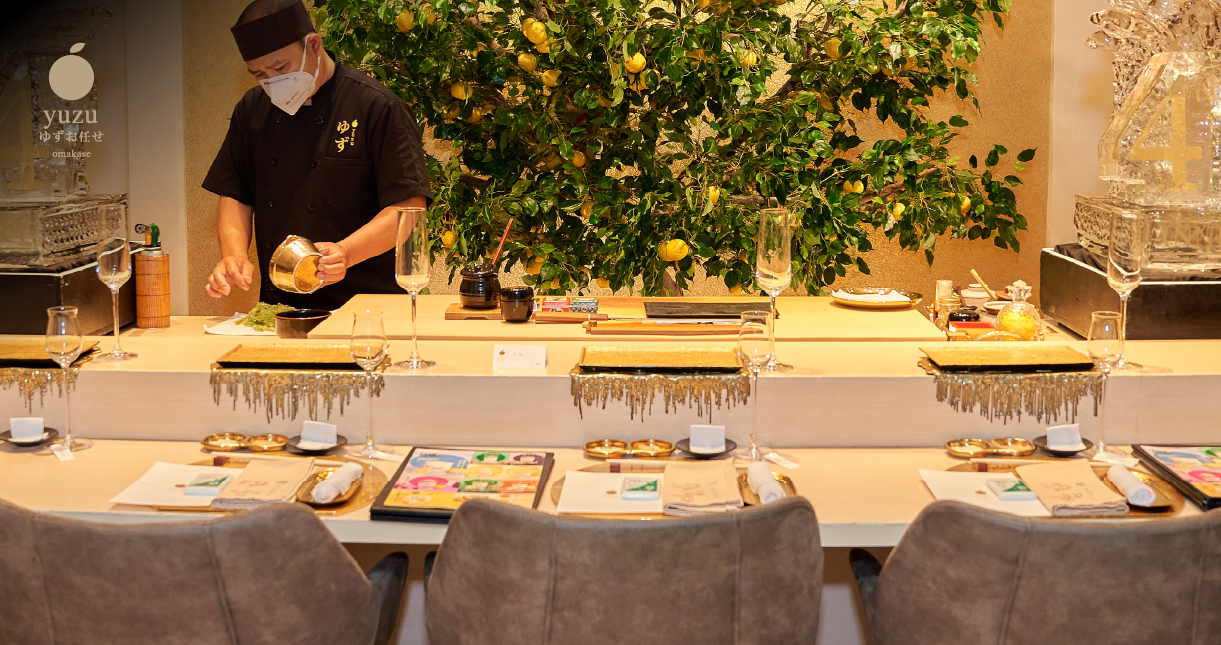
At the heart of Zen philosophy is the concept of simplicity—removing excess to reveal the essential beauty of the space. This principle is fundamental to the design of Zen-inspired Japanese restaurants, where minimalism is embraced to create an environment that is free from distractions, allowing diners to focus fully on the present moment.
Clean Lines and Open Spaces
The use of clean, uncluttered lines and open spaces in the restaurant design fosters a sense of calm. Every element in a Zen restaurant is purposeful, with nothing extraneous to distract from the dining experience. The openness and simplicity of the design create a peaceful atmosphere, encouraging guests to feel more at ease as they enjoy their meal.
By incorporating natural materials such as wood, stone, and bamboo, Yuzu Omakase mirrors the serenity of nature, bringing an element of the outside world into the dining space. These materials contribute to the overall sense of calm, grounding the space and providing a connection to nature, which is central to Zen philosophy.
Design Insight
Natural materials like wood and stone help evoke a feeling of tranquility, creating a harmonious environment that soothes the mind and body.
2. Soft Lighting and Natural Elements: Creating a Sense of Calm
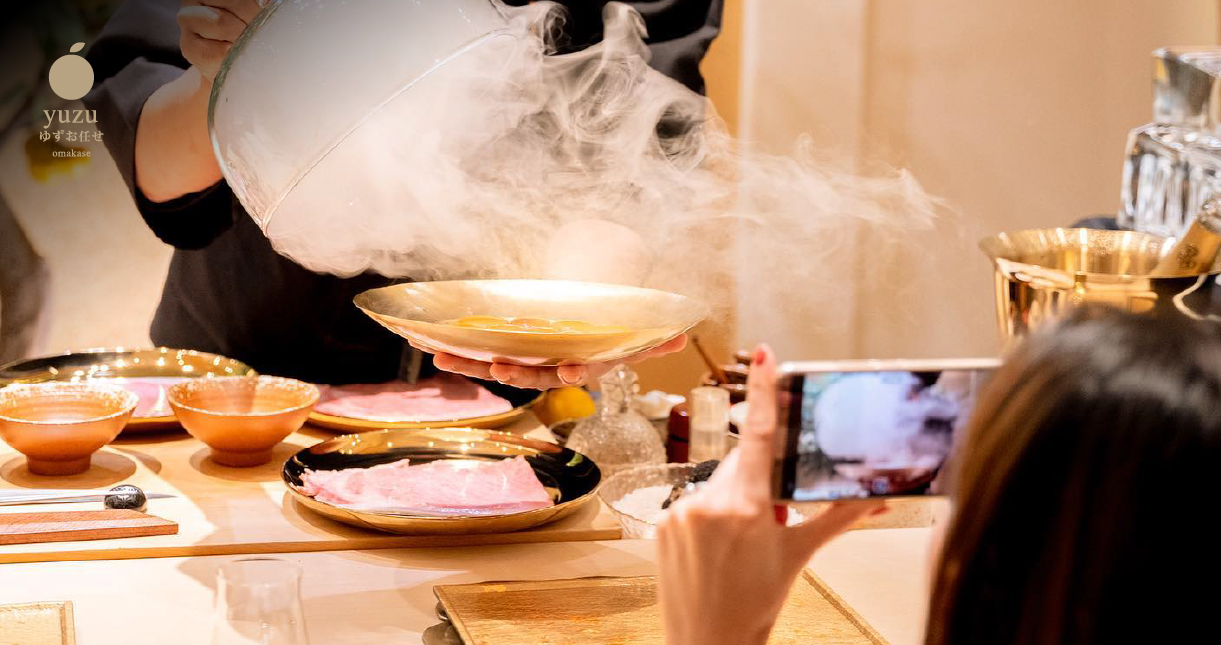
Lighting plays a crucial role in setting the mood and atmosphere in a Zen-inspired restaurant. At Yuzu Omakase, we utilize soft, ambient lighting that creates a warm and inviting glow, allowing guests to feel relaxed and comfortable from the moment they enter.
The Importance of Lighting in Zen Design
Harsh, bright lighting can cause stress and discomfort, while soft lighting promotes relaxation. The gentle glow of lanterns or recessed lights provides a sense of warmth without being overpowering, encouraging diners to slow down and enjoy the moment. This lighting helps to create an intimate atmosphere, perfect for mindful dining.
Integrating Natural Elements
Zen design often incorporates natural elements such as plants, water features, and earthy tones, which contribute to a sense of balance and serenity. At Yuzu Omakase, subtle touches like potted bonsai trees, small water features, and smooth stone pathways enhance the natural ambiance, creating a tranquil space that promotes relaxation.
The sound of trickling water from a small fountain or the sight of carefully arranged greenery can calm the mind, helping to reduce stress and anxiety. These natural elements encourage mindfulness, inviting diners to be fully present and aware of their surroundings.
Design Insight
Soft lighting and natural elements create an inviting, peaceful space, encouraging relaxation and mindfulness during the dining experience.
3. Engaging the Senses: Mindfulness in Every Detail
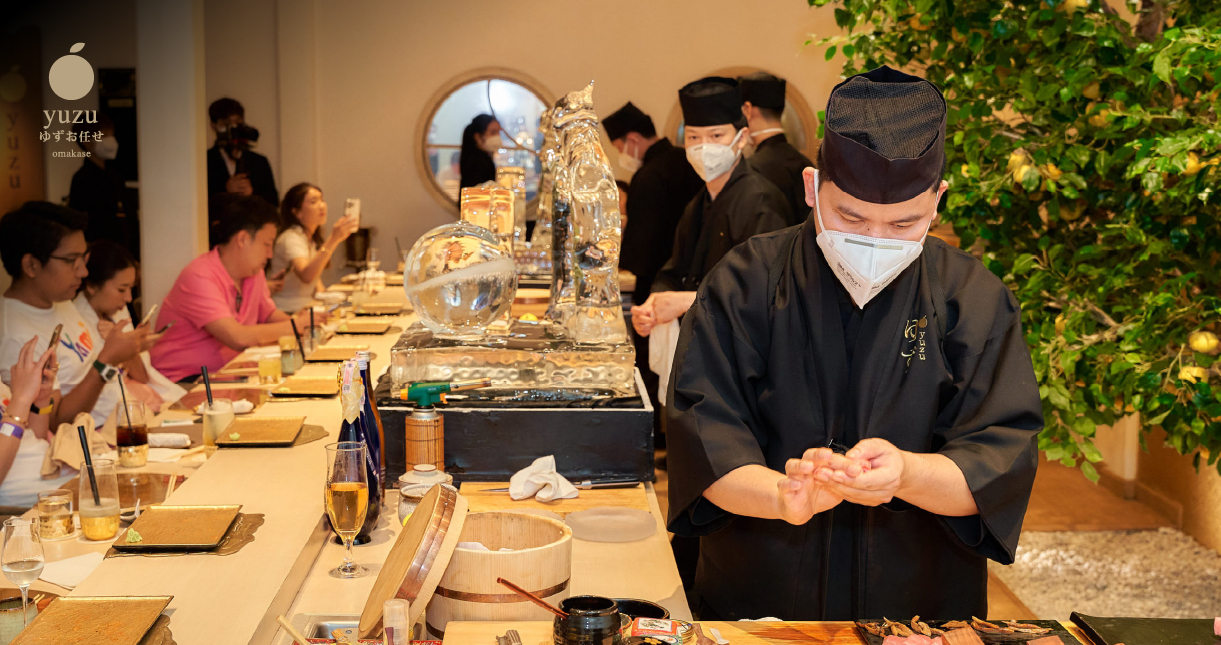
Zen design emphasizes the importance of engaging all the senses, creating an immersive experience that fosters mindfulness. At Yuzu Omakase, every detail—from the materials used to the way the food is presented—is designed to encourage a deeper connection with the present moment.
Visual Appeal and Balance
The aesthetic principles of balance and harmony are central to Zen design, which is reflected in everything from the architecture to the plating of the dishes. At Yuzu Omakase, each dish is presented with attention to detail, creating a sense of visual calm and order. The colors, textures, and arrangement of the food on the plate mirror the simplicity and beauty of the restaurant’s design, encouraging diners to appreciate the artistry in both the space and the meal.
Subtle Sounds and Aromas
The sensory experience at Yuzu Omakase extends beyond the visual. The subtle sound of water, the faint rustling of bamboo leaves, and the soft hum of conversation all contribute to the overall ambiance. These sounds are deliberately unobtrusive, allowing diners to focus on their meal while enjoying a soothing, sensory-rich environment.
The aromas in the restaurant, from the natural scent of wood and bamboo to the delicate fragrance of the dishes themselves, create an atmosphere that is both inviting and relaxing. The combination of these sensory elements fosters a sense of mindfulness, helping guests to slow down, breathe deeply, and fully engage with the experience.
Design Insight
Engaging multiple senses, from sight to sound and smell, enhances mindfulness, making the dining experience more immersive and calming.
4. The Flow of Space: Encouraging Connection and Presence
The layout of a Zen-inspired restaurant is designed to promote a sense of flow, encouraging guests to move smoothly through the space without feeling rushed or crowded. At Yuzu Omakase, the arrangement of tables and seating allows for privacy and intimacy while also creating an open, welcoming atmosphere.
Calm and Fluid Movement
The flow of the restaurant’s design encourages slow, deliberate movement, much like the principles of mindful walking in Zen practice. The use of soft curves and organic shapes in the layout allows guests to navigate the space with ease, promoting a sense of calm and relaxation.
The open yet intimate seating at Yuzu Omakase ensures that guests can enjoy their meal without feeling cramped or rushed. Whether seated at the sushi counter or in a private dining area, the space allows for a peaceful, unhurried dining experience that supports mindfulness and connection with the moment.
Mindful Seating Arrangements
The seating arrangements at Yuzu Omakase are designed to foster both privacy and connection. Guests who prefer a more intimate, reflective experience can choose private rooms with minimalist décor, while those who wish to engage with the chef and the preparation of their meal can enjoy the sushi counter, where they can observe the artistry of sushi-making in real time.
By offering different seating options, we ensure that each guest can enjoy the experience in a way that feels most aligned with their own need for relaxation and connection.
Design Insight
The flow and layout of the restaurant encourage calm movement and mindful engagement with the space, allowing for a more peaceful and connected dining experience.
5. Fostering Mindfulness Through Design: The Zen Approach to Dining
Zen design is rooted in the idea of mindfulness—being fully present in the moment and aware of every detail around you. At Yuzu Omakase, our design reflects this philosophy, creating a space where guests can engage fully with their meal, their surroundings, and their own state of mind.
A Focus on the Present Moment
By eliminating distractions and embracing simplicity, the design of Yuzu Omakase encourages guests to focus on the present moment. The uncluttered aesthetic, soft lighting, and harmonious natural elements all contribute to an environment that promotes mindfulness, allowing guests to fully savor each bite and enjoy the act of dining as a form of meditation.
Reducing Stress and Promoting Relaxation
The calming atmosphere of a Zen-inspired restaurant can have a profound impact on mental well-being. Studies have shown that minimalist, nature-inspired environments can help reduce stress, lower blood pressure, and promote a sense of peace. By fostering relaxation through design, Yuzu Omakase provides a sanctuary where guests can step away from the fast pace of daily life and experience the therapeutic benefits of mindful eating.
Design Insight
By fostering mindfulness through design, Yuzu Omakase encourages guests to be fully present, enhancing both the dining experience and overall mental well-being.
Conclusion: Experience the Calming Power of Zen Design at Yuzu Omakase
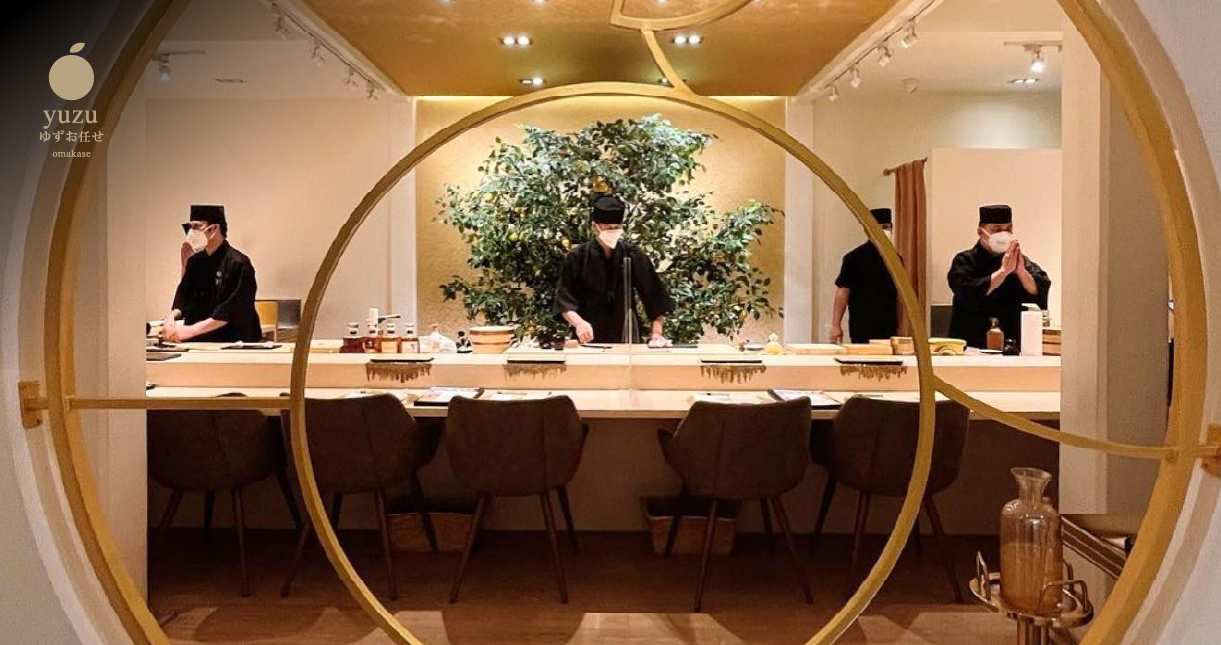
At Yuzu Omakase, we believe that the environment in which you dine is just as important as the food itself. Our Zen-inspired design promotes a sense of calm, relaxation, and mindfulness, allowing guests to connect more deeply with the present moment and experience the full benefits of a mindful dining experience.
From the clean lines and natural materials to the soft lighting and peaceful flow of the space, every element at Yuzu Omakase is designed to enhance your mental well-being. Ready to experience the calming power of Zen design? Book your seat online today and discover how mindful dining at Yuzu Omakase can nourish both your body and mind.

RELATE
-
Mindful Nutrition Through Sushi: Yuzu Omakase’s Commitment to Health and Taste
When every ingredient is chosen with care and every bite is crafted with balance, the result is more than a meal—it’s nourishment for the body and the spirit. At Yuzu Omakase Thailand, mindful nutrition isn’t a trend. It’s tradition.
Well-Being ● 2025 Jul 15



